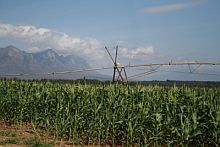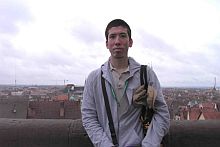Land reform in the lowveld comes under scrutiny
|
The SAEON Ndlovu Node welcomed another foreign student this April.
Simon Ikenoue, a Masters student, will be based at the Node for the next three months while he investigates land reform and its impact on environment and productivity. The focus will be on farms that have been transferred in ownership through the land reform policy.
Land reform in South Africa aims to redress the skewed land ownership in rural areas through providing financial and technical support to claimants. While there is a widespread perception that “claimed farms” become unproductive, or even abandoned, very little has been documented about the fate of these farms.
Simon hopes to determine how changes in land ownership, and management, have affected soil fertility.
Potential threat
Soil underpins the productivity of any farming venture, and soil degradation has important consequences for both agriculture and the broader environment. By establishing impacts of land reform on soils, one could identify the potential threat that the land claim beneficiaries may face in the future, and inform government support for emerging farmers.
Born in Cape Town, but raised in Japan and now studying at the University of Hohenheim in Germany, Simon has had a long journey to end up in Phalaborwa!












